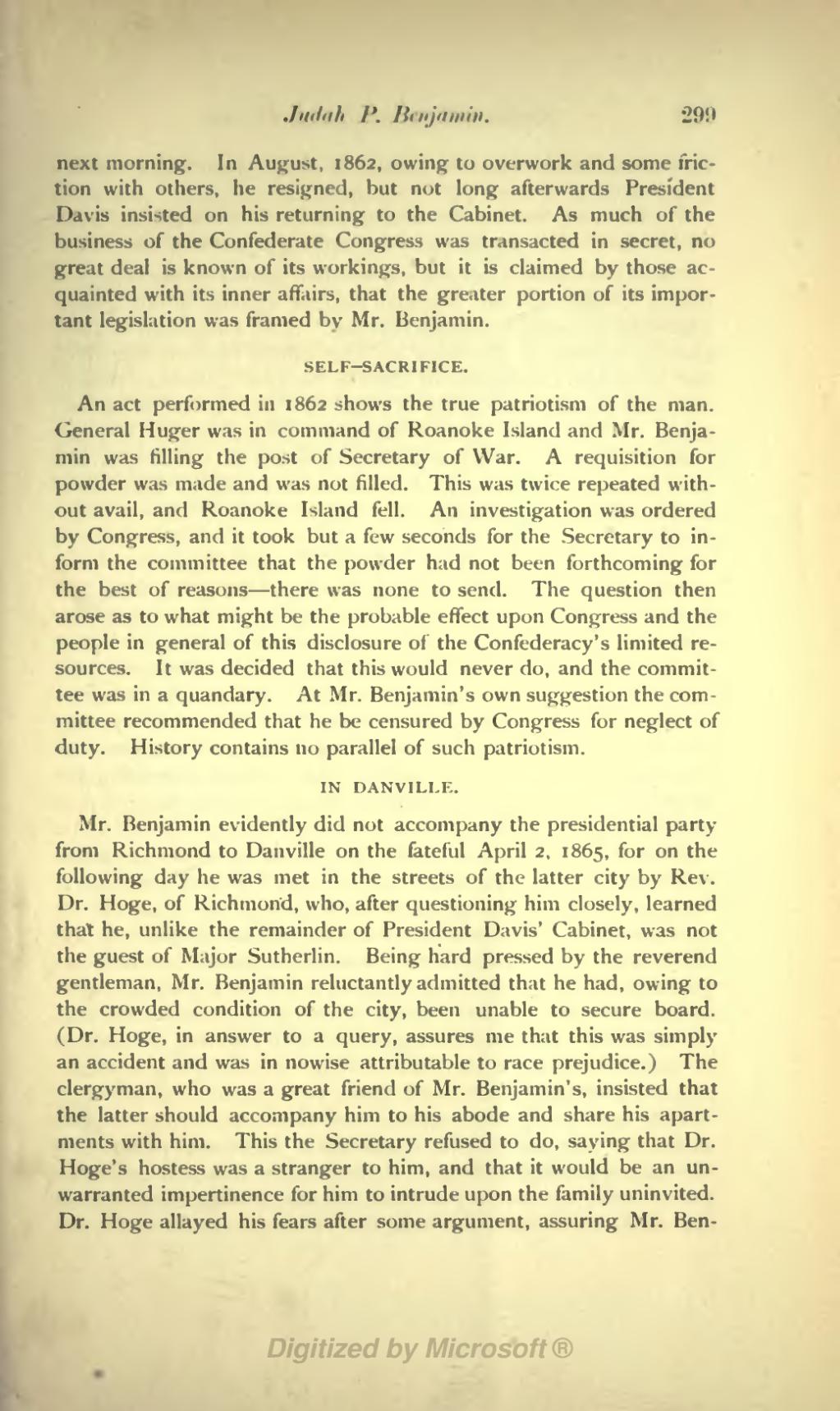next morning. In AugiM, 1X62, owing to overwork and sonic fric- tion with otli.-rs. In- ivs^iifil, hut not long afterwards President D.i\i> insisted on his returning to the Cabinet. As much of tin- I>UMII<",S of the Confederate Congress wa^ tr.m->irted in secret, no it deal is known of its workings, but it is claimed by those ac- quainted with its inner affairs, that the greater portion of its impor- tant legislation was framed by Mr. Benjamin.
SELF-SACRIFICE.
An act performed in 1862 shows the true patriotism of the man. General Huger was in command of Roanoke Island and Mr. Benja- min was rilling the post of Secretary of War. A requisition for powder was made and was not filled. This was twice repeated with- out avail, and Roanoke Island fell. An investigation was ordered by Congress, and it took but a few seconds for the Secretary to in- form the committee that the powder had not been forthcoming for the best of reasons there was none to send. The question then arose as to what might be the probable effect upon Congress and the people in general of this disclosure of the Confederacy's limited re- sources. It was decided that this would never do, and the commit- tee was in a quandary. At Mr. Benjamin's own suggestion the com- mittee recommended that he be censured by Congress for neglect of duty. History contains no parallel of such patriotism.
IN DANVILLE.
Mr. Benjamin evidently did not accompany the presidential party from Richmond to Danville on the fateful April 2, 1865, for on the following clay he was met in the streets of the latter city by Rev. Dr. Hoge, of Richmond, who, after questioning him closely, learned that he, unlike the remainder of President Davis' Cabinet, was not the guest of Major Sutherlin. Being hard pressed by the reverend gentleman, Mr. Benjamin reluctantly admitted that he had, owing to the crowded condition of the city, been unable to secure board. (Dr. Hoge, in answer to a query, assures me that this was simply an accident and was in nowise attributable to race prejudice.) The clergyman, who was a great friend of Mr. Benjamin's, insisted that the latter should accompany him to his abode and share his apart- ments with him. This the Secretary refused to do, saying that Dr. Hoge's hostess was a stranger to him, and that it would be an un- warranted impertinence for him to intrude upon the family uninvited. Dr. Hoge allayed his fears after some argument, assuring Mr. Ben-
